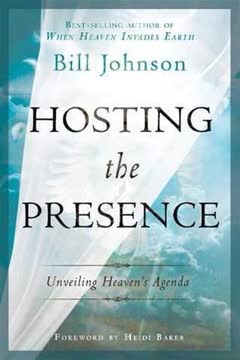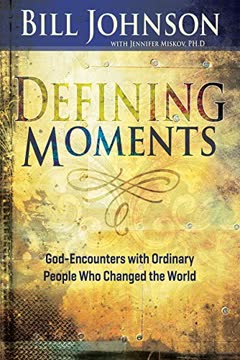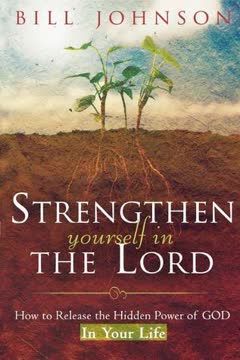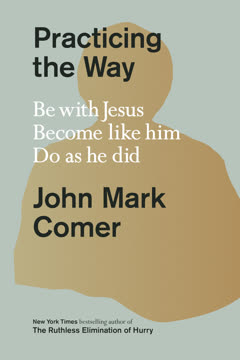Key Takeaways
1. Relationships Thrive When Powerful People Choose Love
In order to be able to make and keep commitments like this—commitments to enduring, intimate relationships—you need to be a certain kind of person. You need to be a powerful person.
Choose your relationships. Lasting, intimate relationships aren't accidental; they are built through hard work and intentional choice. The foundation is not "You chose me," but "I choose you," a commitment based on who you are and what you are committed to doing. This requires you to be a powerful person who takes responsibility for your life and decisions, choosing who you want to be with and how you will pursue that relationship, regardless of the other person's actions.
Powerless vs. Powerful. Powerless people are driven by anxiety and fear, using language like "I can't" or "I have to," and relying on others to meet their needs. They often try to control or manipulate others, blame external factors for their problems, and create environments of anxiety. In contrast, powerful people control themselves, not others, and deliberately create respectful environments by modeling the behavior they expect.
Becoming powerful. Moving from a powerless to a powerful mindset requires repentance – changing the way you think. This involves identifying and renouncing lies (especially about control and responsibility) and embracing the truth, often with the help of others or inner healing tools. Choosing to be powerful, taking responsibility for your choices, and committing to love is the most rewarding path to healthy relationships.
2. Fear Drives Disconnection; Love Creates Safety
When the threat of harm is high, the level of love is low.
Pain triggers fear. Our natural reaction to pain or the threat of pain is fear, leading to fight, flight, or freeze responses, all aimed at creating distance. Many grow up in relational cultures that use fear-based tools like control, manipulation, and withholding love, teaching that only one person can be powerful and instilling the lie that we can and should control others. This sets us up to treat people like "rattlesnakes," avoiding intimacy.
God's fearless love. Unlike human fear, God's love is perfect and fearless; He relentlessly moves toward us despite our mistakes and sin, demonstrating that His goal is connection, not distance. He created us for freedom, giving us choice, because true love requires freedom, not control. Where the Spirit of the Lord is, there is liberty, showing that partnering with God increases our freedom and power.
Fear is the enemy. Fear and love are opposing forces from different kingdoms; they cannot coexist. Partnering with the Spirit of love requires a "no tolerance" policy for fear and punishment in relationships. Choosing to respond with love in the face of pain, rather than reacting out of fear, is essential for building healthy connections and requires training your mind, will, and body to obey love, not instinct.
3. Commit to Connection as Your Primary Relationship Goal
The truth is that every relationship has one of two goals: connection or disconnection.
Intentional direction. Relationships are always moving towards either connection or disconnection, revealed by the skills and habits people adopt. Many couples drift into disconnection unconsciously, developing skill sets around creating safe distance rather than safe connection. Recognizing this default trajectory is the first step towards intentional change.
Choose your goal. You must consciously decide whether your goal is distance or connection. If distance is the goal, no relational tools will help build intimacy. Only when you commit to pursuing connection do you become motivated to acquire the necessary skills to move towards others, even when it's difficult or scary.
Fight for connection. Committing to connection means facing the core battle between fear and love. It requires making fundamental commitments: "It's my job to control myself" and "My number-one goal and priority in relationships is building and protecting connection." This powerful choice demands significant investment but leads to becoming a person capable of keeping your love on, no matter what others do.
4. Master the Art of Communicating Love and Needs
Communication exposes what is going on inside the human heart.
Truth or facade. Communication reveals the heart's state; fear leads to hiding and confusing messages, while faith, hope, and love release truth. Fear of truth hijacks communication, preventing honest expression of feelings, thoughts, and needs, often because people were never taught how to interpret or value their internal reality. You cannot value or understand others if you don't value or understand yourself.
Powerless communication styles. Fear-based communication manifests as passive ("You matter, I don't"), aggressive ("I matter, you don't"), or passive-aggressive ("You matter... No, not really!"). These styles are rooted in false beliefs about self-worth and destroy connection by preventing genuine truth exchange. They are all ultimately driven by fear and selfishness, despite appearances.
Assertive communication. The powerful alternative is assertive communication: "You matter and so do I." This style values the internal reality of both individuals, requiring courage to show what's happening inside oneself. Assertive communicators insist on mutual respect and equal value in conversations, refusing to engage in devaluing exchanges and setting boundaries when others slip into powerless roles.
5. Build Trust Through Vulnerability and Meeting Needs
From the moment we enter the world, our deepest need is to love and be loved by other human beings and to engage in lasting relational bonds.
The trust cycle. Trust is fundamental to healthy development and relationships, built through consistently completed trust cycles: having a need, expressing it, receiving a response, and having the need satisfied. This cycle requires relational connection; unmet needs or negative responses damage trust, leading to wounds and agreement with lies about unworthiness.
Expressing needs. Expressing needs is crucial for completing the trust cycle and building connection. People who haven't learned this skill may expect others to telepathically know their needs, a desire rooted in powerlessness and fear of vulnerability. God models healthy need expression by asking us to ask Him, showing that the connection built through vulnerability is essential for needs to be met.
"I messages" build trust. Respectful communication requires telling others about you, not telling them about them. The "I message" ("I feel [emotion] when [experience] and I need to feel [emotion]") is a powerful tool for expressing feelings and needs without judgment, allowing the other person to see your heart and choose how to respond. This vulnerability is key to building intimacy ("into-me-see") and trust, overcoming the fear of rejection that drives people towards destructive counterfeits like addiction.
6. Navigate Conflict by Fighting For Connection
The “thing” at stake, if you are curious, is the health of the relational connection.
Conflict is inevitable. Conflict is a natural part of relationships, like disease or injury to a body. While preventing conflict is ideal, navigating it healthily can strengthen the connection, making individuals more powerful and the bond more resilient. The critical choice is whether to let conflict tear you apart or fight for your connection within it.
Build conflict resistance. Healthy communication practices – understanding, valuing self and others, setting boundaries, expressing needs, listening, and speaking love languages – build a strong, conflict-resistant connection. Consistently prioritizing connection when things are calm prepares you to pass the test when storms arise. Jesus modeled this by intentionally creating opportunities for His disciples to prioritize their connection with Him above offense or disagreement.
Defuse fear in conflict. Conflict becomes ugly when fear triggers fight, flight, or freeze reactions, all damaging to connection. Recognizing these reactions in yourself and others is key. To steer conflict towards resolution, you must require respect and focus on discovering and meeting needs. A respectful conversation has the goal of strengthening connection by understanding needs, not winning an argument or demanding change.
7. Establish Healthy Boundaries to Protect Your Life and Relationships
You are responsible to manage different levels of intimacy, responsibility, influence, and trust with people in your life.
Levels of intimacy. Not everyone should have the same access to your life. Healthy relationships require managing different levels of intimacy, prioritizing those in your inner circles (God, spouse, close family/friends) over those in outer circles (acquaintances, strangers). Jesus modeled this prioritization with the Father, the twelve, the three, and the one.
Boundaries protect your "garden". Your life is a garden given by God, which you are responsible to tend and keep. Healthy boundaries protect the value and fruitfulness of your garden from consumers – people who want to take without giving back. Boundaries are not selfish when used to protect your ability to sustain health, generosity, and healthy relationships; they are necessary to ensure you have resources to offer your core connections.
Setting limits. Setting limits involves clearly stating what you will do, based on your priorities, rather than telling others what they must do. This requires valuing your own life and commitments, even when it means saying "no" to others, especially those in your inner circles who might inadvertently threaten your priorities (like Jesus setting a boundary with Peter). Codependency, trying to control others' problems, is not love but a failure to set boundaries and take responsibility for oneself.
8. Prioritize Your Core Relationships, Starting with God
If you don’t prioritize your relationship with God, then your God Spot will end up with a human being in it.
God at the core. The innermost circle of intimacy, the "God Spot," belongs solely to God. He is the only one who knows you perfectly, deserves your primary allegiance, and holds ultimate influence in your life. Placing a human being in this spot is idolatry and throws your priorities, resources, and relationships out of balance, leading to powerlessness and destructive behaviors.
God protects relationships. Prioritizing your relationship with God doesn't compete with human relationships; it protects them. God teaches you how to love others and defines the healthy priorities and boundaries for your relationships. His Spirit provides the power, love, and self-control needed to maintain these priorities and boundaries, even when challenged.
The big "yes". God's "yes" to us – giving us access to the deepest spot in His heart and offering us all that He is – enables our big "yes" to Him. Choosing God above all other options, circumstances, feelings, and desires, especially when uncomfortable, makes us powerful. Experiencing His love anchors us in valuing our lives and living within the boundaries that keep Him as the priority, which in turn protects the priorities He sets for our human connections.
9. Take Responsibility for Your Own Well-being
Powerlessness, irresponsibility, and lack of boundaries are all rooted in failing to value your life as you should.
Value your life. Your life is a gift of infinite value from God. Receiving and internalizing this value is the foundation for setting healthy boundaries and taking responsibility for your well-being. Failing to value your life leads to powerlessness, allowing others to exploit you and preventing you from cultivating the resources necessary to thrive and contribute to others.
Tend your garden. God has given each person a "garden" – their life, including physical, emotional, mental, and spiritual health, talents, finances, etc. You are solely responsible for tending and keeping this garden. You must invest in its cultivation to produce good fruit.
Oxygen mask principle. Taking care of yourself is not selfish; it's a prerequisite for being able to care for others. Like putting on your own oxygen mask before helping someone else, you must ensure your own health and fruitfulness to have something valuable to offer in relationships. Not tending your garden leaves you dependent on others and sets up unhealthy, consuming dynamics.
10. Set Limits by Clearly Stating What You Will Do
As a powerful person, you always want to be focused on what you have the power to control—yourself.
Focus on your actions. Setting boundaries effectively means focusing on what you will do, based on your priorities and commitments, rather than telling others what they should or shouldn't do. This keeps you in control of your responses and resources, defined by your values, not by the demands or choices of others. It requires the ability to say "yes" to your priorities and, consequently, "no" to things that compete with them.
Communicate your plan. Clearly stating your intentions – "I'm going to spend time with my family," "I've committed that evening," "Saturdays are for study" – communicates your boundaries without needing to make excuses or justify your choices. This powerful communication respects the other person's freedom to react however they choose while maintaining your commitment to your own path.
Actions speak loudest. Ultimately, people will believe your actions more than your words when it comes to boundaries. Consistently following through on what you say you will do reinforces your limits and teaches others how to interact with you respectfully. This proactive approach is a strong offense against being consumed and protects the health of your relationships by ensuring they are based on mutual respect for individual priorities and responsibilities.
Last updated:
FAQ
1. What is "Keep Your Love On: Connection Communication And Boundaries" by Danny Silk about?
- Focus on Relationships: The book is a practical guide to building, strengthening, and healing relational connections, whether in marriage, family, friendships, or community.
- Three Core Themes: It centers on three major relational themes: connection, communication, and boundaries, offering actionable strategies for each.
- Mindset Shift: Danny Silk emphasizes the importance of becoming a "powerful person" who takes responsibility for their own choices and love, rather than trying to control others.
- Spiritual Foundation: The book integrates Christian principles, highlighting God’s unconditional love and the importance of aligning with love over fear in all relationships.
2. Why should I read "Keep Your Love On" by Danny Silk?
- Practical Relationship Tools: The book provides clear, actionable tools for improving communication, setting healthy boundaries, and fostering deep connections.
- Addresses Common Struggles: It tackles real-life issues like disconnection, fear, powerlessness, and codependency, offering hope and solutions.
- Applicable to All Relationships: Whether you’re single, married, a parent, or a leader, the principles apply to every type of relationship.
- Faith-Based Perspective: Readers seeking a Christian approach to relationships will find biblically grounded advice and encouragement.
3. What are the key takeaways from "Keep Your Love On" by Danny Silk?
- Choose Connection Over Distance: Healthy relationships are built on the intentional pursuit of connection, not on maintaining safe distance or control.
- Be a Powerful Person: Taking responsibility for your own actions, emotions, and love is essential; you cannot control others, only yourself.
- Communicate Assertively: Honest, respectful, and vulnerable communication is necessary for trust and intimacy; passive, aggressive, or passive-aggressive styles undermine connection.
- Set and Maintain Boundaries: Boundaries protect your priorities and relationships, ensuring you can love others well without being consumed or exploited.
4. What is Danny Silk’s definition of a "powerful person" in "Keep Your Love On"?
- Self-Responsibility: A powerful person takes full responsibility for their choices, emotions, and actions, rather than blaming others or circumstances.
- Consistent in Love: They choose to keep their love on regardless of how others behave, making love a decision rather than a reaction.
- Healthy Boundaries: Powerful people set and maintain boundaries, saying "yes" and "no" clearly and meaningfully.
- Invites Others to Power: They encourage others to be powerful too, refusing to engage in victim, rescuer, or controller roles.
5. How does "Keep Your Love On" by Danny Silk explain the difference between connection and disconnection in relationships?
- Connection as the Goal: The book teaches that every relationship operates with either the goal of connection (moving toward each other) or disconnection (creating distance for safety).
- Skill Sets Reflect Goals: People develop habits and skills that either foster closeness or maintain distance, often unconsciously.
- Fear vs. Love: Disconnection is usually driven by fear and self-protection, while connection requires vulnerability and courage.
- Intentional Choice: Shifting from disconnection to connection is a conscious decision that must be made and maintained by both parties.
6. What are the "Five Love Languages" and how are they used in "Keep Your Love On" by Danny Silk?
- Touch: Physical affection and contact are essential for some people to feel loved and connected.
- Acts of Service: Doing helpful or thoughtful things communicates love to those who value actions over words.
- Gifts: Thoughtful presents, regardless of cost, show attention and care to those who feel loved through gifts.
- Quality Time: Focused, undistracted time together is crucial for those who value shared experiences and attention.
- Words of Affirmation: Positive, encouraging, and affirming words build up those who need verbal expressions of love.
- Application: Understanding and speaking each other’s love languages is key to keeping love "turned on" and reducing anxiety in relationships.
7. How does Danny Silk describe healthy communication in "Keep Your Love On"?
- Assertive Communication: The healthiest style is assertive, where both people’s thoughts, feelings, and needs are valued equally.
- "I" Messages: Using "I feel..." statements rather than accusations or judgments fosters vulnerability and understanding.
- Goal of Understanding: The primary goal of communication should be understanding, not agreement or persuasion.
- Avoiding Relationship Killers: Passive, aggressive, and passive-aggressive styles are rooted in fear and destroy connection.
8. What is the "Trust Cycle" in "Keep Your Love On" by Danny Silk, and why is it important?
- Four Steps: The trust cycle involves having a need, expressing it, receiving a response, and having the need satisfied.
- Foundation of Intimacy: Successfully completing trust cycles builds trust, intimacy, and a sense of safety in relationships.
- Broken Trust: When needs are ignored or dismissed, trust is damaged, leading to survival behaviors and disconnection.
- Healing: Restoring trust requires vulnerability, honest communication, and a willingness to meet each other’s needs.
9. What are the "Seven Pillars of Healthy Relationships" according to "Keep Your Love On" by Danny Silk?
- Love: Commitment to care, value, and pursue the other person’s well-being.
- Honor: Valuing and empowering each other, even in differences and mistakes.
- Self-Control: Managing your own actions and emotions, not trying to control others.
- Responsibility: Owning your choices and responses, rather than blaming or reacting.
- Truth: Being honest and vulnerable about your feelings and experiences.
- Faith: Keeping God as your ultimate source and authority, not making others your "god."
- Vision: Having a shared purpose and direction that gives meaning to your relationship and helps endure challenges.
10. How does "Keep Your Love On" by Danny Silk teach about setting healthy boundaries?
- Levels of Intimacy: Not everyone should have equal access to your time, energy, or resources; boundaries help manage different levels of relationship.
- Say "Yes" and "No": Setting boundaries means being clear about what you will and won’t do, and following through consistently.
- Protect Priorities: Boundaries protect your most important relationships and commitments, especially your relationship with God and your closest loved ones.
- Respond, Don’t React: Boundaries are not about controlling others, but about managing yourself and your resources wisely.
11. What is the role of fear and love in relationships according to "Keep Your Love On" by Danny Silk?
- Opposing Forces: Fear and love are described as enemies with opposite agendas; fear leads to control, punishment, and disconnection, while love leads to freedom, connection, and safety.
- Instinctive Reactions: Fear triggers fight, flight, or freeze responses, which create distance and undermine intimacy.
- Choosing Love: Overcoming fear requires conscious, courageous choices to respond with love, even when it’s vulnerable or risky.
- Spiritual Battle: The book frames this as a spiritual battle, encouraging readers to partner with the "spirit of love" rather than the "spirit of fear."
12. What are the most powerful quotes from "Keep Your Love On" by Danny Silk and what do they mean?
- "You are a powerful person who can make powerful decisions. And more importantly, you are a powerful person who can choose to love—because He chose to love you."
- This quote emphasizes personal responsibility and the freedom to choose love, inspired by God’s example.
- "The only person you can control—on a good day—is yourself."
- A reminder that self-control, not controlling others, is the foundation of healthy relationships.
- "Perfect love casts out fear."
- Love and fear cannot coexist; choosing love dispels anxiety and creates safety in relationships.
- "Did you learn to love?"
- The ultimate question of life and faith, challenging readers to prioritize love above all else in their relationships.
- "My goal is connection, not distance."
- A declaration of intent to pursue closeness and vulnerability, rather than self-protection and withdrawal.
Review Summary
Keep Your Love On receives mostly positive reviews, with readers praising its practical advice on relationships, communication, and boundaries. Many find it insightful and transformative, appreciating its Christian perspective while noting its broader applicability. Some readers critique the author's writing style, lack of original ideas, or oversimplification of concepts. The book's emphasis on personal responsibility and maintaining love despite challenges resonates with many, though a few find it lacking depth or proper citations. Overall, it's widely recommended for improving relationships and self-awareness.
Similar Books









Download PDF
Download EPUB
.epub digital book format is ideal for reading ebooks on phones, tablets, and e-readers.






